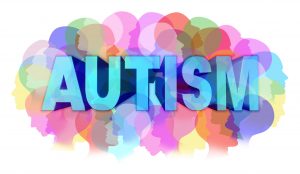In today’s global economy, diversity is not only a smart move; it is essential. To succeed in a diverse and inclusive society, the workplace must be equal and diverse.
Diversity refers to the individual characteristics that individuals have that make them unique. It includes cognitive and lifestyle diversity.
Workplace diversity is a term used for a workplace made up of employees with varying characteristics. Previously, workplace diversity primarily referred to race and ethnicity. Today, workplace diversity includes many different characteristics such as physical disabilities, cognitive diversity, political beliefs, education, socioeconomic background, and geographical orientation.
In the UK, age, sex, disability, gender reassignment, marriage & civil partnership, pregnancy & maternity, race, religion, and sexual orientation are all “characteristics” protected under the discrimination laws. However, a diverse workplace means more than just hiring people from different backgrounds to fill quotas or comply with legislation. It’s about respecting and valuing the skills and differences that employees of different ages, races, nationalities, languages, gender, religion, education, ability, and sexual orientation can bring to your business.
There are many legal, moral, and human arguments for why you should embrace an equal and diverse workforce. There is also the “common sense” argument. Imagine all the players in a football team are goalkeepers? It will be a dull and unproductive game. The same applies if all your employees had the same skills, made the same decisions, and approached each problem the same way.
In our modern global society, workplace diversity is becoming a necessity if you want your company to succeed.
Equality, Diversity & Unconscious Bias Training
We’re running frequent Equality, Diversity & Unconscious Bias Training for you and your employees. This interactive and informative session is designed to equip all employees from junior members of staff, members of the management team, and board-level positions with an overview of the Equality Act 2010 legislation and best practice tips to prevent discrimination.
All participants will be provided with a completion certificate for company records and use, and this course can be used for the continued professional development of individuals within workplaces.
For more information about this training course and to book, click here.
Is there a business argument for having a diverse workforce?
Yes! Diversity brings a serious competitive edge. A diverse workforce provides different skills, perspectives, and a more comprehensive range of talent, leading to a better understanding and an innovative approach to solving problems.
Let’s look at a few of the benefits of a diverse workforce.
New and creative ideas
Diversity attracts a broader skillset from different backgrounds and experiences. New ideas and a comprehensive skillset will impact your company’s ability to adapt to changes in customer demands and offer more comprehensive products and services. Different people view the same problem in unique ways. There is plenty of evidence that diversity drives innovation. A diverse team will bring a range of ideas to the table, increasing the opportunity for creativity and problem-solving. More people with different perspectives and solutions have a greater chance of finding innovative solutions in less time. Less time means less money and a better competitive edge.
Improving productivity
A 2020 McKinsey report reveals a strong business case for diversity. The report showed that diverse companies are 35% more likely to have financial returns above their national industry medians.
More ideas, processes, diverse experiences, and perspectives increase the potential for improved productivity. A range of perspectives means developing better strategies. An inclusive environment improves teamwork, driving a more productive workforce towards greater financial success.
A better understanding of your customers
A culturally diverse workforce means your company is more in touch with a diverse global marketplace. Humans are a diverse species, and so are your customers. Having employees who speak different languages or come from different cultures help your company to understand the nuances of different cultures and different customers. It can overcome cultural difficulties or differences that can hamper your growth.
We only have to look at successful global marketing campaigns to see how important diversity is when appealing to customers. Advertisements for the same product will look and sound different in each country. For the Asian market, the agencies will use Asian actors to appeal to the Asian market, French to appeal to the French market, etc. Similarly, a diverse workforce will market your company more effectively to different customers.
Improving your brand
Your company’s reputation determines how potential customers, investors, and future employees perceive your company.
Diversity can contribute to boosting your brand. A strong brand that portrays a culture of diversity and equality speaks to the right customers in the same way that a culture of sustainability attracts clients. A diverse company will create a more diverse customer base.
Your brand will also determine if job seekers see you as a potential employer. A Glassdoor survey revealed that 76% of job seekers consider diversity important when evaluating companies and job offers.
Diversity helps promote your company as a desirable place to work. Companies that embrace diversity are often perceived as better employers. A brand that embraces diversity makes more people feel that they can relate to the brand. A positive brand is also more likely to retain staff.
Reduced employee turnover
A diverse workforce leads to improved employee engagement. When employees feel comfortable and valued, they tend to engage more. Employees who engage and contribute are more likely to stay with the company. They are happier and more motivated to perform better. Staff retention also saves on recruiting costs and having to invest time and money in training and developing new employees.
A wider talent pool
Limiting your recruitment to a specific section of society will restrict your access to talent. With the current skills shortage in the UK, you need a much wider pool of talent to recruit from. Broadening your recruitment pool to include people of diverse backgrounds, abilities, and skills will widen your talent pool. A culture that embraces diversity will attract more candidates to your vacancies, improving your chances of finding the right candidate. You will save time and money in the recruitment process and benefit from having a choice of suitable candidates.
Increased revenue
Any company wants to increase revenue. That is what business is all about. With the combined benefits of a diverse workforce, you will be closer to reaching your ultimate goal of increasing revenue. There is clear evidence that innovation driven by diversity leads to better performance and increased revenue.
In 2018, a Boston Consulting Group study suggested that companies with above-average leadership diversity also reported innovation revenue 19% higher than companies with below-average diversity.
Building resilience
Whether you say, “the one most responsive to change”, “those who can best manage change” or “the most adaptable to change” will survive, it comes down to the same thing. To survive in today’s rapidly changing society, a business must be able to adapt to survive. Diversity allows a company to evolve and adapt. If it cannot adapt to changing circumstances, the company won’t survive.
In-company benefits
So far, we have focused on how your company will benefit in the marketplace by embracing diversity and equality. There are also numerous benefits for existing employees.
Failing to embrace diversity and equality can create a toxic or hostile work environment. A happy and healthy work environment has many positive effects, other than staff retention and improved productivity. Valuing and respecting all employees create a positive and caring company culture where employees can overcome their own biases and improve their understanding of different cultures and beliefs.
Employees can learn from each other. Sharing personal experiences provide insight into different cultures and traditions, reducing potential negative emotions. When employees respect and understand each other, morale increases.
Exposing employees to different perspectives and world views can facilitate new thoughts and ideas that will benefit the individual and the company.
We are in Your Corner
For advice or for a free assessment contact us today







